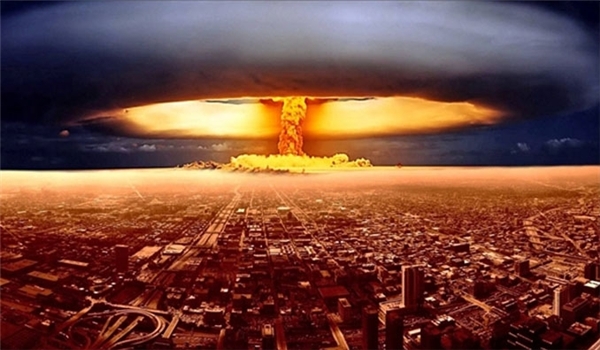
RNA - Historically, all nations send their ambassadors to Norway to the ceremony, but the United States, Britain, and France have all informed Oslo of their “reservations” about ICAN, and won’t be sending their envoys. According to officials, the Pentagon’s planned ban on cluster bombs, scheduled to go into effect at the start of 2019, has also been delayed indefinitely, with the Trump White House arguing that they haven’t found a replacement yet.
This is while more than 120 countries have already approved the global treaty to ban nuclear weapons, including Iran. The legally binding treaty, however, is yet to be adopted by the nuclear-armed nations. None of the nine UN members which possess nuclear weapons - the United States, Russia, Britain, China, France, India, Pakistan, North Korea and Israel - is supporting the treaty.
More so, while most of the planet has banned cluster bombs because of their tendency to kill large numbers of civilian bystanders and litter areas with bomblets that might remain a threat for years to come, the US and company are a handful of countries that still use them, particularly in the ongoing Saudi-led war on Yemen.
True, the 2019 ban wasn’t intended to eliminate the cluster bombs from the US arsenal, but to replace them with a new type they assumed they would discover by then where the bomblets would almost all explode instead of just being scattered on the ground. The discovery never came, and the Pentagon regime is arguing that not using the old style of weapons could risk “mission failure” in some of America’s various wars. The regime argues it is unacceptable to risk soldiers’ lives by not using arms that endanger civilians.
Now that the US has shown a particular eagerness to be very public about how opposed to all this they are, the conclusion has to be this:
Nuclear weapons pose a direct and constant threat to people everywhere. Far from keeping the peace, they breed fear and mistrust among nations. These ultimate instruments of terror and mass destruction have no legitimate military or strategic utility, and are useless in addressing any of today’s real security threats, such as terrorism, climate change, extreme poverty, overpopulation and disease.
Instead of a ban, the US and other nuclear states want to fortify the pre-existing Nuclear Non-proliferation Treaty. That pact originally sought to limit the spread of atomic weapons beyond the five already in possession at the time of its inception – the US, Russia, Britain, France and China. It compels non-nuclear signatory nations to promise not to pursue atomic weapons. In return, those who already own nuclear weapons would be obliged to commitment towards nuclear disarmament and guarantee non-nuclear states access to peaceful nuclear technology for producing energy.
The problem is, the United States, Britain and France say they don't intend to ever become party to the treaty. They say it “clearly disregards the realities of the international security environment and is incompatible with the policy of nuclear deterrence, which has been essential to keeping the peace in Europe and North Asia for over 70 years.”
Now we know why the Trump White House keeps fueling the ongoing nuclear standoff with North Korea. They want to tell the world community that the UN treaty offers no solution to “the grave threat posed by North Korea's nuclear program, nor does it address other security challenges that make nuclear deterrence necessary” for them.
The Trump White House also wants to argue that the ban doesn't address their concerns, “cannot result in the elimination of a single nuclear weapon, and will not enhance any country's security.” They argue it will do the exact opposite by creating even more divisions at a time when the world needs to remain united in the face of growing threats.
Unlike what Washington and allies would like to suggest, although it is fine to strengthen the nearly half-century-old Nuclear Nonproliferation Treaty, the pact is still the cornerstone of global nonproliferation efforts. It seeks to prevent the spread of atomic arms beyond the weapons powers and ultimately lead to global disarmament
By simply boycotting the treaty negotiations or the Nobel Peace Prize ceremony, the US and company cannot relinquish their international responsibilities to this end. The treaty leaves the door open for all nuclear weapon states to become parties to the agreement and they should do so. It bans any transfer or use of nuclear weapons or nuclear explosive devices, and the threat to use such weapons, particularly in the case of Washington and its ongoing standoff with Pyongyang in the Korean Peninsula.
Add in one last thing by international human rights groups: The abolition of nuclear weapons is an urgent humanitarian necessity. Any use of nuclear weapons would have catastrophic consequences. No effective humanitarian response would be possible, and the effects of radiation on human beings would cause suffering and death many decades after the initial explosion. Prohibiting and completely eliminating nuclear weapons is the only guarantee against their use.
847/940